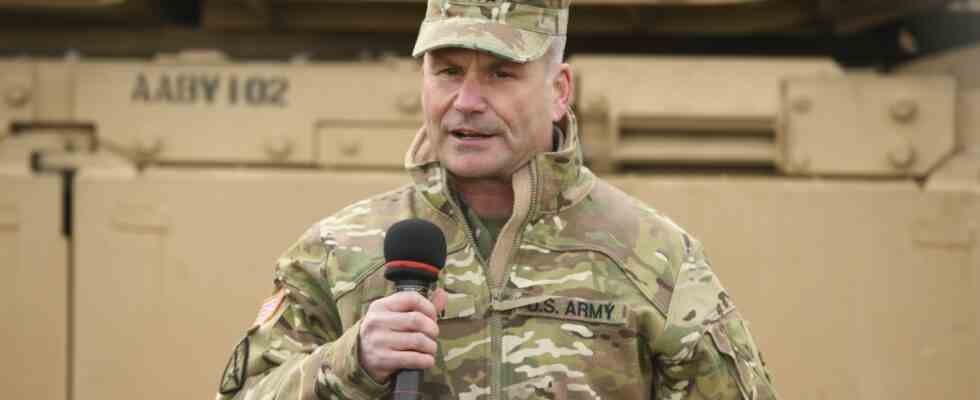Even if Markus Söder would like it to be different: For US General Christopher Cavoli, the Awarded the Bavarian Order of Merit on March 14th will probably not be remembered as the most important event of 2022. Because everything indicates that Cavoli will take over the roles of commander for all US armed forces in Europe and NATO supreme commander in the summer. The “Supreme Allied Commander Europe”, Saceur for short, always comes from the USA – the first with this title, Dwight D. Eisenhower, even made it into the White House in 1953. Earlier this week, Cavoli was nominated by President Joe Biden, the ambassadors of the 30 member states have already approved the personnel. Confirmation by the US Senate is considered certain.
All reports and background information on the war in Ukraine – in the SZ in the morning and in the SZ in the evening. Our news–Newsletter brings you up to date twice a day. Free registration at sz.de/morgenabend. In our news app (download here) you can also subscribe to the news newsletter or our breaking news as a push message.
Cavoli, in his early 60s (no more is known), is thus a key figure in organizing the right response by NATO members and their armies to the threat posed by a revisionist Russia. In the future, he will be responsible for all strategic military operations decided by the member states. Since the start of the Russian invasion of Ukraine, 40,000 NATO soldiers have been under Saceur’s command – and the number is likely to increase.
He knows the Cold War from his own experience
For his new job, it is an advantage that Cavoli not only knows Bavaria very well, but also knows Europe very well. He was stationed in Garmisch-Partenkirchen as well as in Grafenwoehr in Upper Palatinate, where he headed the US Army’s military training area from 2014 to 2016. He was born in Würzburg because his father was stationed there as an officer. After World War II he emigrated to the USA and joined the army. The Cavolis went from military base to military base, and he graduated from high school today’s four-star general in Vicenza. He knows the times of the Cold War, when a quarter of a million US soldiers were present in Western Europe, from his own experience.
Cavoli joined the US Army in 1987, having previously completed his biology degree at Princeton. After officer training, he was stationed in Italy before earning a master’s degree in Eastern European Studies from Yale. Since then he has also spoken Russian in addition to Italian and French. This was followed by deployments in Bosnia and Afghanistan and management tasks at various US bases – his wife and two sons are also used to moving regularly. Between 2001 and 2005 he was the “Russia Director” of the US Armed Forces in Washington.
Laying large bandages quickly – he knows his stuff
So Cavoli has been dealing with Vladimir Putin’s Russia, which is arming itself heavily and is becoming increasingly aggressive, for a long time. The man with the striking bald head can impressively report how NATO was looking for a task at the beginning of the 21st century and saw it in crisis management and the fight against terrorism. “The last US tanks left Europe in 2013. A year later, Russia conquered parts of eastern Ukraine and annexed Crimea”, he said in an online lecture in 2021. The Americans’ heavy equipment and thousands of soldiers quickly returned, because ultimately only the US military can defend the NATO members in Eastern and Southeastern Europe.
In his last post, as commander-in-chief of the US Army for Europe and Africa based in Wiesbaden, Cavoli planned several large-scale exercises in which thousands of soldiers and equipment were transported across the Atlantic. These relocation skills are necessary to defend Alliance territory. Such experiences are likely to become important in the near future. At the NATO summit at the end of June, the heads of state and government want to adopt a new “strategic concept” up to 2030. Russia is no longer a partner for NATO, the focus is on defense and deterrence. So thousands of additional NATO soldiers are likely to be transferred to the eastern flank – including from Germany. So when Cavoli starts work in Mons, Belgium, in the summer, he knows exactly what politics expects of him.

